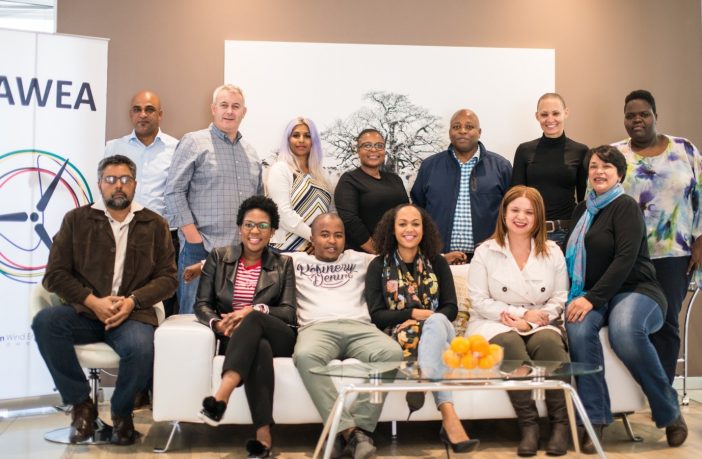- South African Wind Energy Association has answered calls for a more co-ordinated and balanced Renewable Energy Independent Power Producer Procurement Programme.
- Begins a proactive process to develop a vision for the achievement of increased socio-economic transformation as well as improved co-operation and collaboration on Economic Development spend.
- A total of twelve wind and solar power plants were represented.
Given the Renewable Energy Industry’s potential and willingness to contribute to national socio-economic development, the industry is taking proactive measures to ensure coordinated efforts result in greater local benefit.
Speaking at a recent energy forum, Energy Minister, Jeff Radebe, signaled government’s intention that the socio-economic and enterprise development spends of the Renewable Energy Independent Power Producer Procurement Programme’s (REI4P) should be managed in a more coordinated way.
“The Wind industry welcomes this approach and has begun a proactive process to develop a vision for the achievement of increased socio-economic transformation as well as improved co-operation and collaboration on Economic Development spend,” explained Brenda Martin, CEO of the South African Wind Energy Association (SAWEA).
SAWEA’s recent ‘From Co-operation to Collaboration Roundtable’, convened to coincide with Global Wind Day, was organised by the Association’s ‘Wind for Communities’ working group. The roundtable explored how Economic Development practitioners could increase provincial collaboration, the differences between co-operation and collaboration, and when neither were appropriate or necessary.
By bringing together practitioners that are actively engaged in post-construction Economic Development strategic planning and implementation, the event was able to focus directly on opportunities for greater collaboration, for the benefit of beneficiary communities.
“Increased collaboration, together with a stronger culture of knowledge-sharing among practitioners can result in more effective implementation while cutting down on duplication and resulting in more visible collective results, to the greater benefit of local communities” said Martin.
The 5th bid window (BW5), which will be launched later this year, is also expected to include increased requirements for participation by women- and youth-owned businesses, an important facet of achieving socio-economic transformation.
A total of twelve wind and solar power plants were represented at the roundtable, which was organised on the basis that Economic Development practitioners make a critical contribution through the local economic development spend associated with 20-year power purchase agreements (PPAs) of IPPs.
Kouga Wind Farm’s ED manager Trevor Arosi said, “There is a high concentration of wind farms in the Eastern Cape, so I appreciated the opportunity to participate in a discussion aimed at increasing consolidation of strategies to ensure the most efficient use of resources and the most impactful outcome for the local beneficiary communities.”
Whilst it was agreed that much more can be achieved through accountable strategic partnership initiatives that reduce duplication while harnessing opportunities for value-add, an appreciation for local contextual difference, and the importance of discerning when collaboration is not appropriate was also acknowledged.
The 20-year PPA allows for a long-term development outlook, which can result in inter-generational benefit that is advanced by improved practitioner knowledge-sharing, transparency, and accountability.
As an Industry Association operating within a developing economy, SAWEA’s role includes facilitation of enhanced developmental policy implementation. “The roundtable on June 15th, was an important first milestone on what promises to be a rich journey of improved co-operation and collaboration between ED practitioners – focused on achieving greater local community benefit,” concluded Martin.
SAWEA’s six working groups, each focus on selected priority themes for the industry and were established in order to ensure that member expertise is directly applied in SAWEA’s work to influence policy development, technical solutions, socio-economic development knowledge production and operational excellence.
Source: South African Wind Energy Association (SAWEA) www.sawea.org.za















